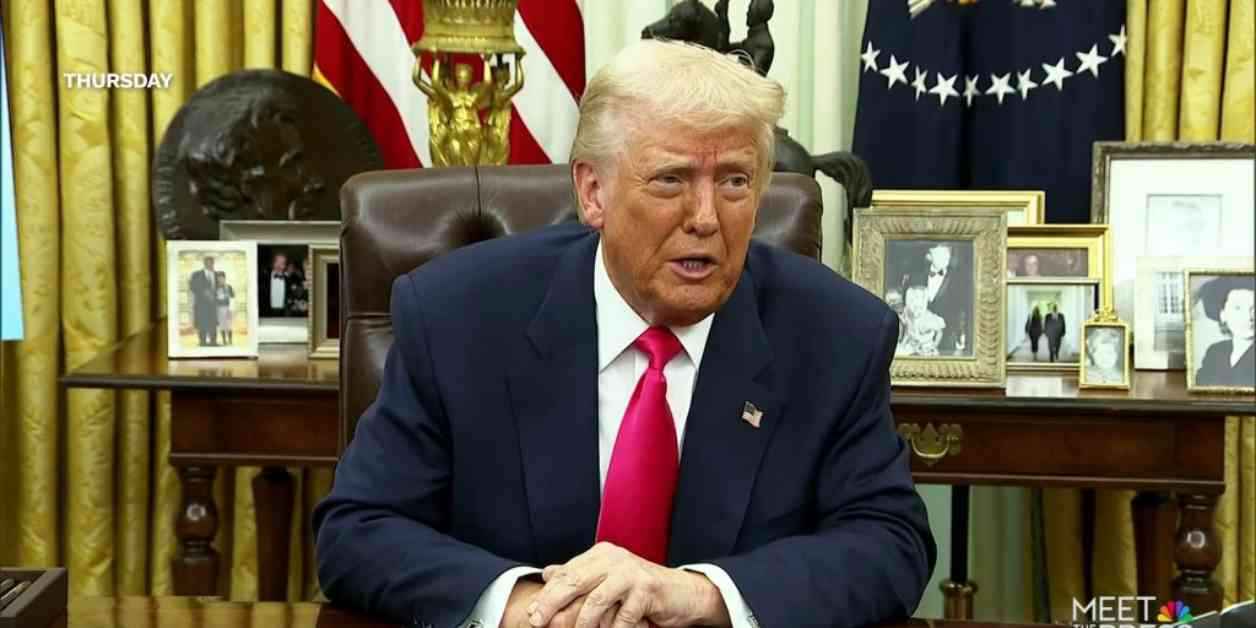In a recent Cabinet meeting, President Trump made it clear that a minerals deal would not be sufficient to restart aid to Ukraine. This declaration comes amidst ongoing discussions regarding foreign policy and international relations. The conditions set by the President highlight the intricate diplomatic dance that takes place behind closed doors, shaping the interactions between nations.
During the meeting, Commerce Secretary emphasized the importance of a comprehensive agreement with Ukraine, signaling that a mere minerals deal would not meet the administration’s criteria for resuming aid. This stance underscores the complexities involved in international negotiations and the multifaceted nature of foreign aid decisions. It also sheds light on the strategic considerations that guide the United States’ approach to supporting foreign allies.
Challenges and Considerations in Foreign Aid
The issue of foreign aid is a nuanced one, with various factors influencing decisions made by governments. In the case of Ukraine, the conditions set by the Trump administration reflect a desire for a more substantial commitment from the country before aid can be reinstated. This approach is not uncommon in diplomatic circles, where agreements are often contingent on meeting specific criteria to ensure mutual benefit and compliance with international norms.
Expert insights on foreign aid policies emphasize the importance of strategic alignment and shared goals between donor countries and recipients. By setting clear conditions for restarting aid to Ukraine, the United States aims to secure commitments that are in line with its foreign policy objectives and national interests. This diplomatic maneuvering illustrates the intricate web of relationships that underpin international aid efforts and the complexities involved in navigating geopolitical dynamics.
The Human Impact of Aid Decisions
Beyond the political and strategic considerations, the issue of foreign aid also carries significant human implications. The decision to withhold or resume aid to a country can have far-reaching consequences for its citizens, impacting access to essential services, economic stability, and overall well-being. In the case of Ukraine, the conditions set by the Trump administration may have ripple effects that extend beyond the realm of diplomacy.
As discussions continue around the resumption of aid to Ukraine, it is essential to keep in mind the human faces behind these decisions. The individuals and communities relying on foreign assistance are directly impacted by the outcome of these negotiations, highlighting the need for careful consideration and empathy in international relations. By weaving together the political, strategic, and human dimensions of foreign aid, a more comprehensive understanding of the complexities involved in such decisions emerges.
In conclusion, the conditions set by President Trump for restarting aid to Ukraine underscore the intricate nature of international relations and diplomacy. By emphasizing the need for a comprehensive agreement beyond a minerals deal, the administration is navigating a complex web of strategic considerations and diplomatic maneuvers. As discussions unfold, it is crucial to remember the human impact of aid decisions and the broader implications for individuals and communities in need. Through a holistic approach that considers political, strategic, and human factors, a more nuanced understanding of foreign aid policies emerges, shedding light on the intricate dance of diplomacy on the world stage.


